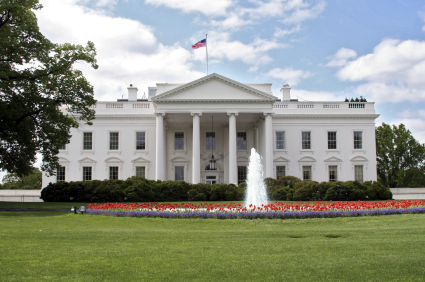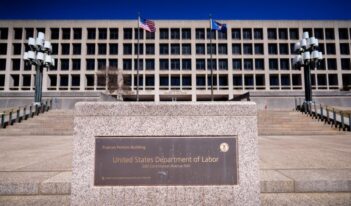
Business groups challenge the constitutionality of three recess appointments to the NLRB.
In a motion filed last Friday in an ongoing lawsuit against the National Labor Relations Board (NLRB), three business advocacy groups asked a federal judge to allow them to challenge the constitutionality of President Obama’s recent recess appointments to three NLRB board vacancies.
Because the Senate was not in a “self-declared recess,” the groups argue, the Constitution’s Recess Appointments Clause does not apply and President Obama did not have the power to make appointments without Senate confirmation. The Constitution grants the President the power “to fill up all vacancies that may happen during the recess of the Senate, by granting commissions which shall expire at the end of their next session.”
Two important, but not necessarily clear words in the Recess Appointments Clause are “happen” and “recess.”
If “happen” means “happen to arise,” then the President can only fill positions that first become vacant during a Senate recess. If “happen” means “happen to exist,” then the President can fill any vacancies that still exist during a recess. This difference could be pivotal because only one of the President’s three recess appointments to the NLRB fills a vacancy that arose after Senators left for the winter holidays.
If “recess” only refers to intersession recesses, which are annual breaks between sessions of Congress, then the President would have only one opportunity a year to make recess appointments. On the other hand, if “recess” refers to both intersession and intrasession recesses, which have generally been thought to be breaks of at least three days typically around national holidays, then the President would have six or seven chances throughout the year to make recess appointments.
The NLRB, which usually has five board members appointed to five-year terms expiring on a rotating basis, accumulated vacancies in August, 2010, August 2011, and most recently with a board member’s term that expired on January 3, 2012. The Supreme Court has held that the NLRB cannot act with less than three board members.
On January 3, the day before President Obama made his recent recess appointments and the day before the last NLRB member position became vacant, the Senate met for a pro forma session, which is a brief meeting in which no business is conducted. In a January 6 memorandum, the Department of Justice defended the constitutionality of the recess appointments by arguing that pro forma sessions do not interrupt an intrasession recess.



